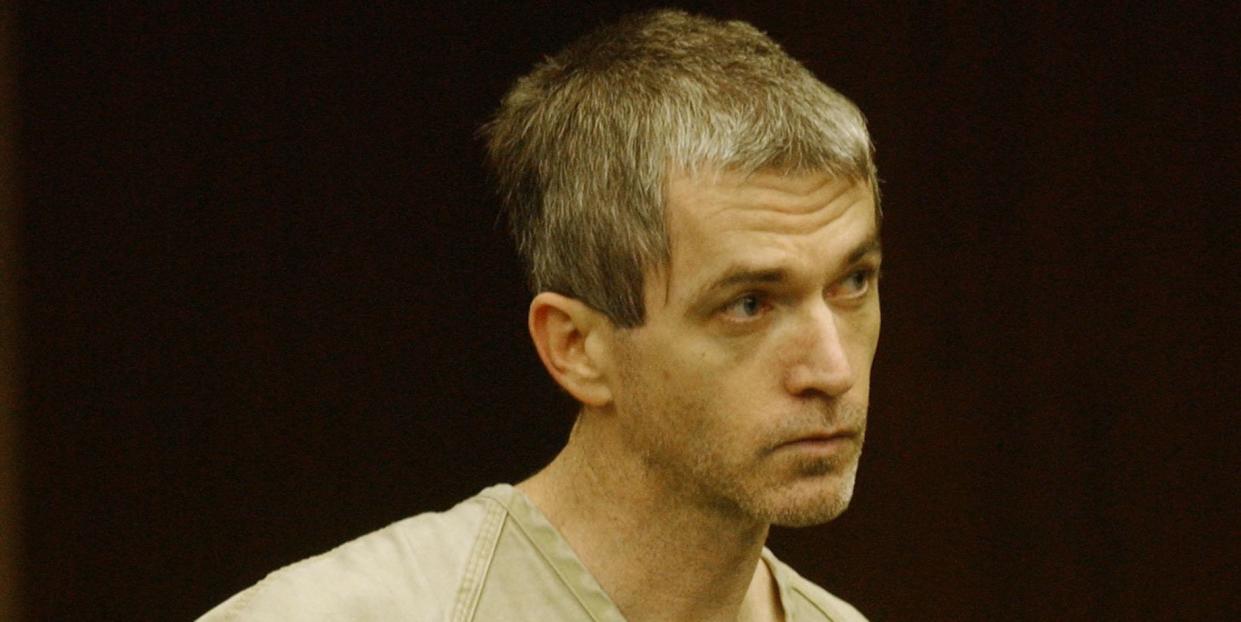Why Did Charles Cullen From Netflix's The Good Nurse Kill?

- Oops!Something went wrong.Please try again later.
"Hearst Magazines and Yahoo may earn commission or revenue on some items through the links below."
From 1988 to 2003, Charles Cullen worked as a nurse in multiple medical facilities across New Jersey and Pennsylvania. Cullen, a New Jersey native, went on a murderous rampage throughout his 16-year career. Known as the Angel of Death, Cullen admitted to killing between 30 and 40 patients at the hospitals and nursing homes where he worked, but there may be more unconfirmed victims. According to NJ.com, investigators close to the case believe Cullen could have killed up to 400 patients, making him "the most prolific serial killer" in history. Netflix adapted Charles Graeber's non-fiction book, The Good Nurse: A True Story of Medicine, Madness, and Murder, into a film following the nurse who helped the investigation that would ultimately lead to Cullen's arrest and conviction.
Cullen's unfathomable crimes left many viewers wondering why a nurse, husband, and father of two would go on such a harrowing crime spree. Ahead, find every we know about why Charles Cullen became a murderer.
Why did Charles Cullen kill?
In 2013, Cullen gave his first-ever television interview with CBS' series 60 Minutes, where he openly discussed the crimes he committed and the reasons why. "I worked on the burn unit," he explained. "It was a lot of pain and suffering, and I didn't cope with that as well as I thought I would." According to Cullen, he only remembered one victim, retired judge John W. Yengo Sr., in 1988, and that was the one victim that he identified to the police. Although he admitted to murdering between 30 to 40 patients, Cullen added, "There is no justification. I think that the only thing I can say is that I felt overwhelmed at the time. It was more or less I felt like I needed to do something, and I did, and that's not an answer to anything."
Cullen also revealed that his killings were acts of mercy. "I thought that people weren't suffering anymore, so in a sense, I thought I was helping." Despite his claims, some of his victims were not near death or suffering. 60-year-old Elenor Stoecker, an asthma patient, was recovering and in no pain when Cullen administered a fatal digoxin overdose. College student Michael Strenko was recovering from a routine spleen removal surgery when he was killed.
Cullen's mental state has also been called into question, leaving many to wonder if that played a role in his decision to embark on such a devastating journey. He attempted suicide for the first time after his mother died when he was 17. After dropping out of high school, Cullen joined the Navy, where he was reportedly bullied and attempted suicide again, resulting in his discharge from the military. According to 60 Minutes, Cullen attempted suicide over 20 times and was frequently admitted to psychiatric hospitals before his arrest.
While many speculated that Cullen seamlessly committed these murders without raising any suspicion, he revealed that two hospitals were aware of what he was doing. "I think you can say that I was caught at St. Barnabas, and I was caught at St. Luke's," Cullen said. "There's no reason that I should've been a practicing nurse after that. They said. 'if you resign, I'll give you neutral references,' and I decided to go with that." For Cullen, his dismissal from those roles without any criminal investigation or charges was largely based on the hospital's concern about the public response to his crimes. "I think because it's a matter of worrying about lawsuits. If they pointed out that there was a problem, we're [the medical facilities] going to be liable for millions of dollars. They just thought it would be easier not to put themselves in a position of being sued."
The Good Nurse author Chris Graeber had his theory about Cullen's motives. "There were a couple different versions of 'why' for him," he said to USA Today. "One of them was 'because he could.' It made him feel special and empowered, and it blew off steam. He didn't understand the human cost or care (about it). The other reason he would give was that he was 'compelled' to intervene. He framed some of the murders as acts of mercy, or that he felt compelled because of the circumstances of the (ailing) individuals. But really, that compulsion had everything to do with his needs and nothing to do with the needs or wishes of the innocent patient."
While we may never know the real reason Charles Cullen killed patients while working as a nurse, we do know that his incarceration prevented a slew of others victims. When he was asked about his crimes and finally being caught, Cullen told 60 Minutes, "I don't know if I would've stopped."
You Might Also Like

